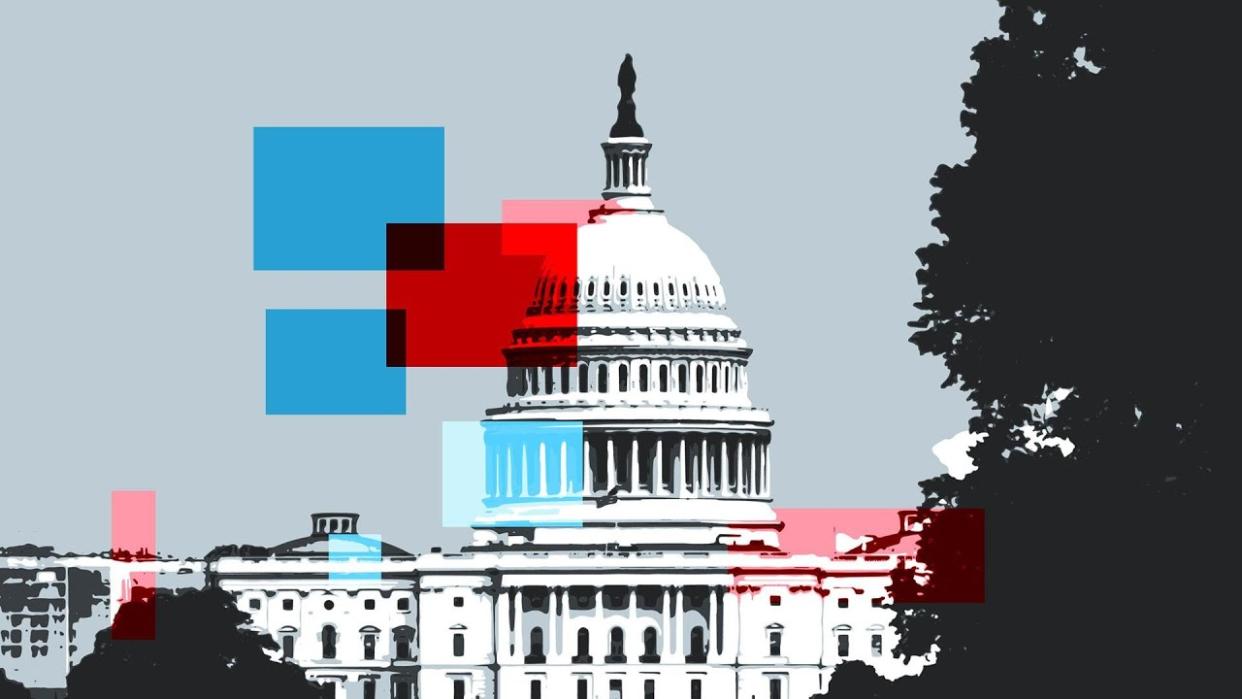AI startups ramp up federal lobbying efforts

AI lobbying at the U.S. federal level is intensifying in the midst of a continued generative AI boom and an election year that could influence future AI regulation.
New data from OpenSecrets, a nonprofit group that tracks and publishes metrics on campaign financing and lobbying, shows that the number of groups lobbying the federal government on issues related to AI grew from 459 in 2023 to 556 in the first half of 2024 (from January to July). At the same time, top AI startups have ramped up their lobbying initiatives, OpenSecrets data reveals.
ChatGPT maker OpenAI has dramatically increased its lobbying expenditures, spending $800,000 in the first six months of 2024 versus $260,000 in all of 2023. Meanwhile, the company has grown its team of outside lobbyists from three consultants last year to around 15 in the first half of 2024.
In March, shortly before OpenAI welcomed ex-NSA director Paul Nakasone to its board of directors, the startup retained former Republican Sen. Norm Coleman to advocate on research and development issues. Other prominent law firms, including Akin Gump Strauss Hauer & Feld and DLA Piper, have registered lobbyists for OpenAI, per OpenSecrets.
OpenAI has also bolstered its internal policy team, hiring Chan Park, former senior director of congressional affairs at Microsoft, to head its U.S. and Canada partnerships last November. The number of employees on OpenAI's global affairs division has more than quadrupled since last year to 35 across eight countries, according to the Financial Times, and the company plans to expand the division to 50 by the end of the year.
Elsewhere, OpenAI rival Anthropic is on track to spend half a million dollars on lobbying over the next few months. So far in 2024, Anthropic has invested $250,000 in its five-lobbyist team -- nearly the amount it spent on three lobbyists in all of 2023 ($280,000).
Anthropic hired two outside lobbying firms last January, retaining former AWS lobbyist Stoney Burke of Aquia Group and Jed Bhuta of Tower 19. The company also has an in-house lobbyist, who it brought on in early March.
Even smaller AI firms are committing tens of thousands of dollars to lobbying efforts.
In the first half of this year, Cohere, which invested $70,000 in lobbying policymakers last year, increased its spend to $120,000, according to OpenSecrets data. Cohere primarily builds custom generative AI models for enterprise customers, a narrower business than that of OpenAI or Anthropic.
It's no accident that lobbyists are getting more retainers from AI vendors.
For one, it's an election year -- and the leading presidential nominees have made clear their divergent stances on AI regulation.
Democratic forerunner Vice President Kamala Harris has signaled that she's aligned with President Joe Biden's view that AI should be subject to some form of federal oversight. Former president and Republican hopeful Donald Trump, on the other hand, has advanced a dismantling of the White House's AI policies and general deregulation.
The U.S. Commerce Department this week released a report that could telegraph a Harris Administration's direction. The report, out of the Commerce Department's National Telecommunications and Information Administration, advocated for the release of new generative AI models, particularly "open-weigh" models such as Meta’s Llama 3.1, but recommended that the government develop “new capabilities” to monitor such models for risks.
Congress has yet to pass overarching legislation on AI -- or even propose a law as comprehensive as regulations like the EU’s AI Act. The vacuum in federal rulemaking has led to a rush to fill the gap by state and local governments; close to 400 state-level AI laws have been proposed this year, according to the lobbying group TechNet.
OpenAI, for one, has become more vocal about which AI laws and rules it prefers, this week throwing its weight behind Senate bills that would establish a federal rulemaking body for AI, provide federal scholarships for AI R&D and establish AI educational resources in colleges and K-12 settings. (OpenAI has several education customers.)
As the nation awaits the results of the November election to come, OpenAI and other AI vendors are facing potential antitrust cases from U.S. regulators including the Department of Justice and Federal Trade Commission (FTC). CNBC reports that the FTC is seeking more information on Amazon’s recently announced partnership with AI startup Adept and both the Justice Department and FTC are said to be investigating Microsoft's aqui-hire of Inflection staffers. Microsoft gave up an observer seat on OpenAI's board in July, likely a move aimed at easing U.S. antitrust regulators' concerns, as Microsoft is a major investor in the company.

